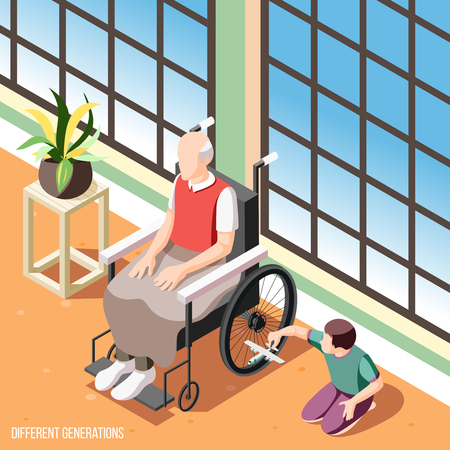Introduction to Multiple Sclerosis and the NHS
Multiple Sclerosis (MS) is a complex, lifelong neurological condition that affects over 130,000 people across the UK. Its impact can be unpredictable, with symptoms ranging from mild numbness and fatigue to severe mobility issues. Living with MS in Britain means facing not only daily physical challenges but also emotional and social hurdles. In this context, the National Health Service (NHS) stands as a cornerstone of support for those diagnosed with MS. The NHS has long been recognised for its comprehensive, patient-centred approach—providing access to essential medical care, coordinated rehabilitation services, and ongoing practical support. From the moment of diagnosis through every stage of the condition, the NHS plays a pivotal role in ensuring that MS patients receive holistic care tailored to their evolving needs. This unique blend of medical expertise, multidisciplinary teamwork, and community integration makes the NHS an invaluable lifeline for thousands navigating life with MS in the UK.
Personalised Care Pathways for MS Patients
One of the key strengths of the NHS in supporting people with Multiple Sclerosis (MS) is its commitment to personalised care pathways. Recognising that no two MS journeys are the same, the NHS ensures that care plans are tailored to each individual’s unique symptoms, lifestyle, and aspirations. This begins from the moment of diagnosis, where multidisciplinary teams—including neurologists, specialist nurses, physiotherapists, occupational therapists, and mental health professionals—collaborate to build a comprehensive support plan.
Initial Diagnosis: Setting the Foundation
The initial diagnosis can be overwhelming for patients and their families. The NHS provides not only medical information but also emotional support and guidance on what to expect next. Early interventions may include education about the condition, symptom management strategies, and introductions to key members of the MS care team. Immediate access to specialist nurses often makes a significant difference in helping newly diagnosed patients feel supported and informed.
Ongoing Management: Adapting to Changing Needs
MS is unpredictable, with symptoms that can fluctuate or progress over time. The NHS adopts a proactive approach by regularly reviewing care plans and adapting them as needs change. This ongoing management includes routine check-ups, adjustments to medication, and referrals for further rehabilitation or social services when necessary. The process is designed to empower patients to make informed choices about their own care while ensuring rapid response to any new challenges.
Examples of Personalised Interventions
| Stage of MS | Common Needs | NHS Support Options |
|---|---|---|
| Early Diagnosis | Information & Emotional Support | Specialist Nurse Consultations, Peer Support Groups |
| Relapse Management | Symptom Relief & Mobility Assistance | Steroid Treatment, Physiotherapy Sessions |
| Progressive Symptoms | Adaptive Equipment & Home Modifications | Occupational Therapy Assessments, Social Care Referrals |
| Palliative Stage | Pain Management & End-of-Life Planning | Palliative Care Teams, Counselling Services |
A Collaborative Approach
The NHS strongly encourages active patient participation in decision-making. By involving individuals with MS in every step—from setting goals to reviewing outcomes—the NHS fosters a sense of ownership over personal health journeys. This collaborative ethos not only helps improve quality of life but also builds trust between patients and their healthcare providers. In summary, through personalised care pathways that evolve alongside each patient’s condition, the NHS delivers holistic and responsive rehabilitation for those living with MS.

3. Role of Multidisciplinary Teams in Rehabilitation
One of the core strengths of the NHS in supporting Multiple Sclerosis patients lies in its collaborative, multidisciplinary approach to rehabilitation. Within NHS hospitals and across community settings, care for MS patients is rarely delivered by a single professional. Instead, a team of specialists works together to create tailored rehabilitation plans that address the diverse and evolving needs of each individual.
The Collaborative Approach
For many living with MS, the journey through rehabilitation can feel overwhelming, but this is where the multidisciplinary team steps in. Typically, an NHS team will bring together neurologists, who lead on medical management and diagnosis; physiotherapists, who focus on improving mobility, balance, and strength; occupational therapists, who help patients adapt their daily routines and environments; and mental health professionals, who provide crucial emotional and psychological support. This collective expertise ensures that care is holistic and patient-centred.
Integration Across Settings
Importantly, this collaborative ethos extends beyond hospital walls. Many MS patients benefit from support at home or in local community clinics. The NHS facilitates seamless communication between hospital-based specialists and community health teams, ensuring continuity of care as patients transition between services. Regular case conferences, shared electronic records, and joint goal-setting are standard practice within NHS trusts across the UK.
Personal Experience: Feeling Supported Every Step
From my own experience working alongside these teams, I’ve seen how this joined-up approach provides reassurance to patients and families alike. Knowing that experts are talking to each other – not just about physical symptoms but also about fatigue management, cognition, work adaptations, and emotional wellbeing – makes a world of difference. It’s not only about addressing immediate medical needs but about empowering people with MS to live as independently as possible.
Access to Rehabilitation Services Across the UK
When it comes to accessing rehabilitation services for Multiple Sclerosis (MS) across the UK, the journey often begins with your MS nurse, GP, or neurologist recognising a need for rehab intervention. The process is designed to be as seamless as possible, but there are local variations in how quickly and easily patients can access support. Understanding these pathways can empower you to navigate the system more confidently.
The Referral Process
Most MS patients gain entry to NHS rehabilitation services via a referral from their healthcare professional. This typically starts with a discussion about symptoms or functional challenges during routine appointments. Once identified, a formal referral is made to a multidisciplinary team (MDT), which may include physiotherapists, occupational therapists, speech and language therapists, and psychologists. In urgent cases, referrals can be expedited, especially if a patient is experiencing a significant decline in mobility or independence.
Local Variations in Service Provision
Rehabilitation services are not uniform across the UK. Some regions have dedicated MS clinics within hospitals, while others rely on community-based rehab teams. Rural areas might face longer wait times due to fewer specialised staff, whereas urban centres tend to offer more comprehensive options. The table below provides an overview of typical service access based on region:
| Region | Typical Waiting Time | Main Service Location |
|---|---|---|
| London & South East | 2-4 weeks | Hospital MS Clinics & Community Centres |
| Midlands | 4-8 weeks | Community Rehab Teams |
| Northern England | 4-12 weeks | Hospital Outpatients & Home Visits |
| Scotland & Wales | 6-16 weeks | Integrated Community Health Services |
Examples of Rehabilitation Centres and Community Services
The NHS supports several specialist centres and community teams across the UK:
- The National Hospital for Neurology and Neurosurgery (London): Offers intensive inpatient and outpatient MS rehabilitation programmes.
- Birmingham MS Centre: Provides tailored physio and occupational therapy through both clinic visits and home outreach.
- NHS Lothian Community Neurological Rehabilitation Team: A Scottish service supporting MS patients at home, focusing on self-management and independence.
- Cardiff and Vale University Health Board: An example from Wales where multi-disciplinary teams deliver integrated care plans close to where people live.
Navigating Your Local Services: Tips from Experience
If you’re newly diagnosed or experiencing a change in your condition, don’t hesitate to ask your MS nurse about available rehab resources in your area. Sometimes, persistence is needed—follow up on referrals and keep communication open with your healthcare team. In my own experience, being proactive and building relationships with local service providers made all the difference in accessing timely support.
5. Everyday Challenges and NHS Solutions
Living with Multiple Sclerosis is not just about managing medical symptoms—it’s about navigating daily life with unpredictable hurdles. MS patients in the UK frequently encounter real-life obstacles that can affect everything from getting around their homes to maintaining employment and safeguarding their mental health. The NHS recognises these challenges and has developed a range of practical, patient-centred solutions to help individuals maintain independence and quality of life.
Mobility: Overcoming Barriers
Mobility issues are among the most prominent day-to-day concerns for people with MS. The unpredictability of fatigue, muscle weakness, and balance problems can make even short trips daunting. To address this, the NHS offers access to physiotherapy services designed specifically for MS patients. These services focus on strength-building exercises, gait training, and tailored mobility aids like walking frames or wheelchairs. Community-based occupational therapists work closely with patients to adapt living spaces—installing grab rails, stairlifts, or providing guidance on accessible public transport schemes available across the UK.
Employment: Staying in Work
For many MS patients, staying in or returning to work is a priority but can be fraught with difficulty due to fluctuating symptoms. The NHS works in partnership with organisations such as Access to Work and local Jobcentres to provide vocational rehabilitation. This support might include workplace assessments, recommendations for reasonable adjustments (like flexible hours or adapted equipment), and ongoing advice for both employers and employees. Specialist NHS teams also offer guidance on managing disclosure at work and accessing statutory rights under the Equality Act 2010.
Mental Health: Emotional Wellbeing Matters
The emotional toll of MS cannot be understated. Anxiety, depression, and cognitive changes are common but often less visible aspects of living with the condition. Recognising this, the NHS integrates psychological support within its MS care pathway. Patients can access one-to-one counselling, cognitive behavioural therapy (CBT), or join peer support groups run by NHS-affiliated charities such as the MS Society UK. Many hospitals also provide neuropsychology assessments and ongoing mental health monitoring as part of routine care plans.
Practical Programmes Making a Difference
What truly sets the NHS apart is its commitment to holistic care through innovative schemes like the “MS Nurse Specialist” service—a dedicated point of contact for advice on everything from medication management to lifestyle choices. Additionally, community rehabilitation teams are available in most regions, offering home visits and personalised goal-setting sessions that empower patients to tackle everyday challenges head-on. These solutions reflect a broader NHS ethos: supporting MS patients not just medically, but practically and emotionally, every step of the way.
6. Involving Patients and Families in Care Decisions
The NHS recognises that effective rehabilitation for people living with Multiple Sclerosis (MS) is not just about medical treatment; it’s about partnership and collaboration. Engaging patients and their families in the decision-making process is a cornerstone of person-centred care across the UK, ensuring that rehabilitation services are tailored to individual needs and values.
Shared Decision-Making
Shared decision-making is fundamental within NHS MS rehabilitation pathways. Clinicians work closely with patients and their families to discuss treatment options, potential outcomes, and personal goals. This collaborative approach empowers individuals to make informed choices about their care, whether it’s selecting physiotherapy goals, deciding on assistive technologies, or exploring lifestyle adaptations. By respecting the lived experiences of those with MS, NHS professionals help foster trust and engagement throughout the rehabilitation journey.
Patient Feedback as a Driver for Service Improvement
The NHS actively seeks feedback from both patients and family members through regular surveys, patient forums, and focus groups. Insights gained from these channels are invaluable for identifying what works well and where improvements can be made. Many Trusts encourage open dialogue by appointing Patient Experience Leads, who ensure that concerns and suggestions are addressed promptly. This culture of listening enables services to adapt responsively to the evolving needs of the MS community.
Ongoing Collaboration Beyond the Clinic
Rehabilitation doesn’t end when a patient leaves the clinic. The NHS promotes ongoing involvement by supporting peer networks, family education sessions, and community-based resources. Families are often invited to participate in care planning meetings, helping them better understand MS management strategies and how they can offer practical support at home. This holistic approach strengthens the support system around each patient, ultimately leading to better health outcomes and improved quality of life.
7. Looking Ahead: Innovations and Future Directions
The NHS is not only committed to providing comprehensive support for people living with multiple sclerosis (MS) today, but is also actively investing in the future of MS rehabilitation through a range of innovative initiatives. One of the most exciting developments lies in the integration of digital health tools within NHS services. For instance, mobile apps are now being trialled to help MS patients monitor their symptoms, track mobility and fatigue levels, and communicate changes directly to their care team. These tools empower patients to take a more active role in managing their condition and enable healthcare professionals to deliver more personalised care.
Furthermore, virtual reality (VR) technology is beginning to make its way into physiotherapy programmes across some NHS Trusts. Early studies suggest VR can make repetitive exercises more engaging, which may improve adherence and outcomes for those undergoing neuro-rehabilitation. At the same time, telehealth appointments have become increasingly common, allowing MS patients—particularly those in rural areas or with significant mobility challenges—to access specialist advice without the need for travel.
Ongoing research projects funded by the NHS and supported by organisations such as the UK MS Society are another cornerstone of progress. These include clinical trials exploring new medications that may enhance neuroprotection and remyelination, as well as studies investigating lifestyle interventions and psychological therapies designed to improve quality of life for MS patients. The NHS is also collaborating with universities and technology partners to develop artificial intelligence (AI) tools that could predict disease progression or tailor rehabilitation plans based on individual needs.
Looking ahead, these innovations hold great promise for further transforming the landscape of MS care in the UK. By embracing digital solutions and fostering cutting-edge research, the NHS continues to strive towards even more accessible, responsive, and effective rehabilitation pathways—ensuring that people with MS receive the ongoing support they need to live fuller, more independent lives.


